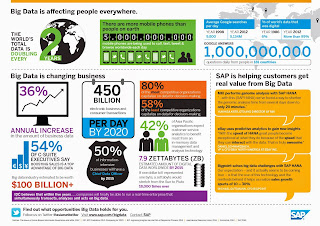Big Data Value initiative from the EU - asking for input on focus

Share your views - Public Consultation on the Big Data Value Strategic Research and Innovation Agenda now open! The European Technology Platform for Software and Services NESSI, together with partners from the FP7 project Big, have drafted a Strategic Research and Innovation Agenda (SRIA) on Big Data Value. The objective of the SRIA is to describe the main research challenges and needs for advancing Big Data Value in Europe in the next 5 to 10 years. The SRIA will be an important channel for providing input to the European Big Data Value Partnership that aims to establish a Public Private Partnership on Big Data Value. The goal of the Big Data Value contractual Public Private partnership (cPPP) is to increase the amount of productive European economic activities and the number of European jobs that depend on the availability of high quality data assets and the technologies needed to derive value from them. This survey is open to all and will be accessibl...
















